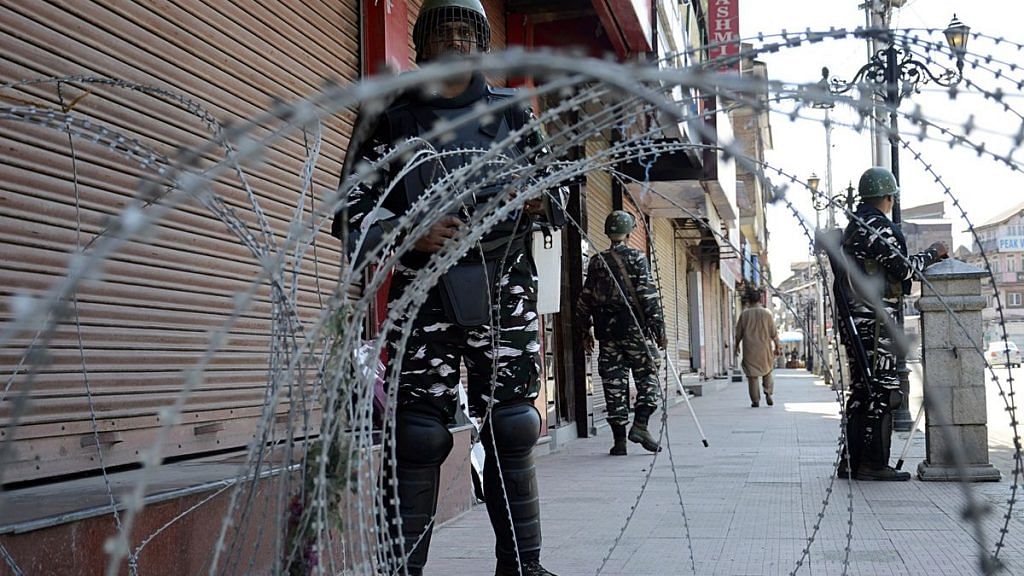The BJP’s real interest in patronizing anyone is only to keep Muslim leaders divided. Any patronage to them serves to give some legitimacy to the electoral politics and keep up the pretence of democracy for the sake of stonewalling a global backlash. The BJP has learnt that its safest bet to completely disenfranchise Jammu and Kashmir is by continuing to maintain the façade of electoral democracy in a much more diluted and tattered form. To this end, Kashmiri politicians are to serve as voodoo dolls whose disempowerment and demonization can set an example for the rest and their constant vilification deliver brownie
points in elections elsewhere in India. Their Jammu counterparts are but collateral expendables.
Kashmir-based academic Noor Ahmad Baba said that though the 24 June meeting with political leaders had generated some hope of a rethinking within the government, there has been no follow-up. ‘Overall, since 2019, there has been a continuous process of disempowerment, not only at the political level but also at constitutional and institutional levels. There is a tendency to silence everybody – businesspersons, employees, the media, and the occasional political narrative, it appears, is used to justify this situation which is not normal.’71 If the 24 June meeting was a political outreach, it was ‘momentary’, he said, and added that what follows from that is the delimitation exercise, which is locally engendering suspicions. ‘People see that instead of being integrated, Kashmir has been singled out and fear that there are larger designs behind it,’ he said.
A senior PAGD leader states that the anti-BJP political leaders are part of the problem with their ‘weak resistance, partial silence and inability to unite’. He admits: ‘Of course, … we may have to bear the brunt, but if we are the mainstream leadership, we need to stick our necks out a little more.’ He adds: ‘Our relevance in the political scene may not be the same as before even if we are able to challenge the BJP in elections and get our statehood back. But this oppressive atmosphere cannot last forever. Our job should be to keep hope alive
for the future.’
The question, however, is whether there is any relevance left for Kashmir’s mainstream politicians. As for separatist politics, the two factions of the Hurriyat are almost inactive, leaderless or have leaders in jail or under house arrest. That, however, does not kill the separatist sentiment. The political vacuum being created systematically by New Delhi has the potential to fuel this sentiment and channelize it in a dangerous direction.
In some ways, the overarching political control is being exercised in an all-too-familiar manner, following the patterns of the past – cutting stronger politicians down to size and putting on pedestal pliable friendlies. Yet, there is much that is different. The descent from the demand for a plebiscite to one for statehood reflects the change in order. As against the previous regimes in New Delhi that handled and controlled Kashmir with extreme suspicion, the present one is guided both by suspicion and disdain for Kashmiris. New Delhi’s mission in Kashmir earlier was to retain Kashmir for its strategic and symbolic value as the centrepiece of India’s secularism. It has now changed to completely overpowering it with the explicit aim of altering its entire texture – bulldozing both its economy and demography. This economic and social project is facilitated through the political disempowerment by silencing the old political narrative completely.
At a deeper level, the change is only superficial. Senior journalist Mohammed Sayeed Malik opines that the regional political discourse was only a façade that New Delhi had allowed when it scripted Jammu and Kashmir’s future with the arrest of its Prime Minister Sheikh Abdullah in 1953 and began the process of hollowing out its autonomy. ‘The political leadership was allowed to exist only as long as they agreed to become loyal foot soldiers,’ he says, adding that what happened on 5 August 2019 was the culmination of the script that was written seven decades ago.
Not only were the political leaders expendable, but any sense of political power they nursed was only imaginary. The BJP has simply removed a layer of pretence. The novelist YashPal wrote the iconic story ‘Pardah’ that revolves around a family pushed to penury but continues to fake its aristocratic legacy while living in a run-down house with a mere curtain to protect its dignity. In due course, as the conditions of the family worsens the curtain is reduced to tatters till it finally falls off. Like the tattered curtain, the charade of political power in Jammu and Kashmir is ending.
But this is not the end. This is the means to an end. The road is set for fulfilling the RSS-BJP’s prime mission in Kashmir – changing its demography and taking control of its land. The charade of political power previously enjoyed couldn’t have stopped it but only slowed
it down.
